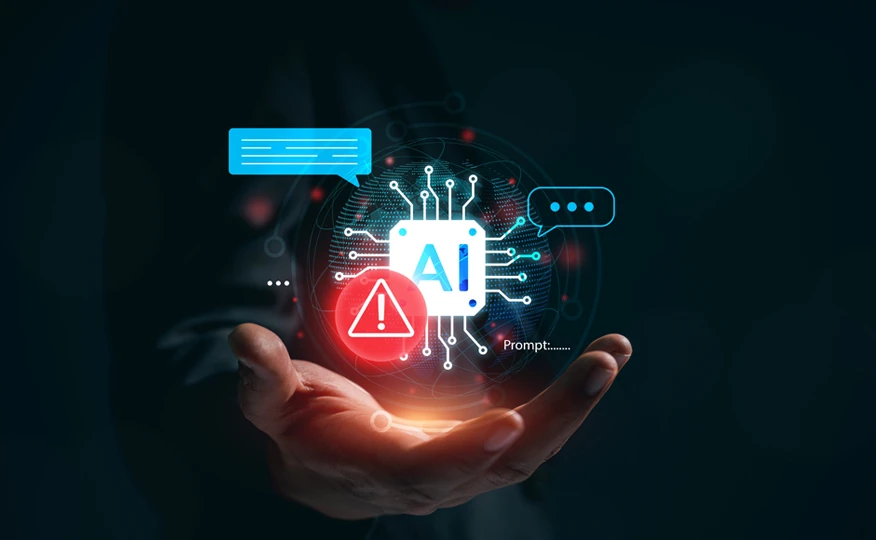Fortune 500 Companies Flag AI Risks Over Benefits in Reports
A majority of Fortune 500 companies now cite AI as a risk factor in annual reports, shifting focus from its benefits to legal and security concerns.
A recent Quartz investigation (link) reveals that 69% of Fortune 500 companies now mention generative AI in their annual reports as a risk factor, while only 30% highlight its benefits. This marks a dramatic shift toward caution in corporate discourse.
Key AI Risks Identified
- Cybersecurity Threats: AI-generated phishing, model poisoning, and adversarial attacks.
- Operational & Reputational Risks: Opaque AI decision-making, including hallucinations and biased outputs.
- Legal & Privacy Exposure: Liability concerns, task misalignment, and "AI washing" (overpromising capabilities).
- Structural Risks: Vendor lock-in, market dominance by AI providers, and supply chain dependencies.

Emerging Threats
Even cybersecurity experts warn of risks from autonomous AI agents, which complicate legal accountability and oversight (source).
Recommended Mitigation Strategies
- Governance Frameworks: Formal structures for AI oversight.
- Bias & Privacy Audits: Regular assessments to ensure compliance.
- Human-in-the-Loop Oversight: Maintaining human control over AI decisions.
- Vendor Contract Revisions: Addressing lock-in and dependency risks.
- Board-Level Training: Embedding AI ethics into corporate policy.
For more on AI and digital diplomacy, explore the Diplo chatbot.
Related News
CometJacking Attack Hijacks Perplexity AI Browser to Steal User Data
A malicious URL exploit turns Perplexity's Comet AI browser into a data thief, exfiltrating emails, calendar, and memory via encoded payloads.
Zero Trust Auditing Essential for AI Era Cybersecurity
Exploring how Zero Trust Auditing is redefining enterprise assurance in the AI era by continuously verifying trust across devices, networks, and AI systems.
About the Author

Dr. Sarah Chen
AI Research Expert
A seasoned AI expert with 15 years of research experience, formerly worked at Stanford AI Lab for 8 years, specializing in machine learning and natural language processing. Currently serves as technical advisor for multiple AI companies and regularly contributes AI technology analysis articles to authoritative media like MIT Technology Review.